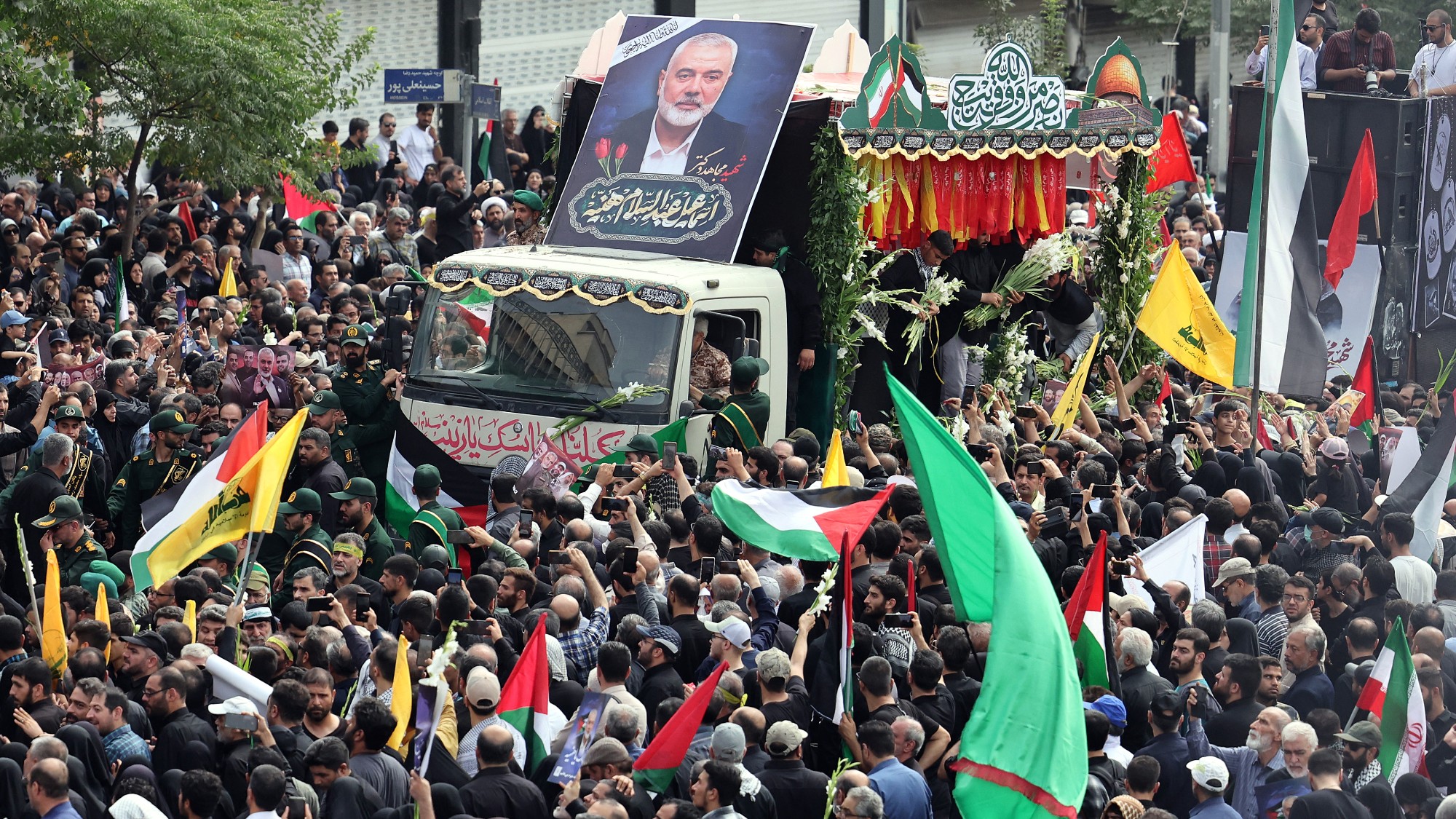Iran and Israel: is all-out war inevitable?
Tehran has vowed revenge for assassinations of Hamas and Hezbollah leaders, but Gaza ceasefire could offer way out

A free daily email with the biggest news stories of the day – and the best features from TheWeek.com
You are now subscribed
Your newsletter sign-up was successful
Since Hamas invaded southern Israel on 7 October last year, the threat of a wider regional war has been "ever-present", said The Daily Telegraph.
Now, it appears, it may be upon us. Israeli, US and European intelligence sources all warned this week that Iran was preparing to launch a strike against Israel in reprisal for the recent assassinations of senior leaders of Hezbollah and Hamas, its allies in Lebanon and Gaza. Such an escalation could spark a conflagration in the region.
'A ceasefire is how Iran avoids the trap'
A ceasefire there, and the return of Israeli hostages, is the key to defusing the situation, said the Financial Times. Talks have been "deadlocked" for months, with Hamas insisting that any hostage deal should guarantee a permanent end to the war in Gaza, which the Israeli PM Benjamin Netanyahu vehemently rejects.
The Week
Escape your echo chamber. Get the facts behind the news, plus analysis from multiple perspectives.

Sign up for The Week's Free Newsletters
From our morning news briefing to a weekly Good News Newsletter, get the best of The Week delivered directly to your inbox.
From our morning news briefing to a weekly Good News Newsletter, get the best of The Week delivered directly to your inbox.
In recent weeks, Hamas has softened its preconditions; but Netanyahu has hardened Israel's position, even as his security chiefs have called for a deal. And Israel's assassination of Ismail Haniyeh, Hamas's main negotiator, was a major setback. Hamas refused to attend this week's planned ceasefire negotiations in either Doha or Cairo.
That may merely be a ploy for leverage, said Esfandyar Batmanghelidj in The Guardian. Many in Hamas, according to negotiators, are now actively seeking a deal. And Iran knows that Netanyahu has laid a trap for them with the recent assassinations. "A ceasefire is how Iran avoids the trap."
Iran could 'call Israel's bluff'
Iran, however, has vowed revenge, said Paul Wood in The Spectator. It may be satisfied with a symbolic strike – or it could "call Israel's bluff" by, say, activating Hezbollah, which has the weaponry to overwhelm Israel's missile defences and cause real damage.
Many Israelis believe that Netanyahu is keeping the war in Gaza going for as long as he can, for his own cynical reasons, said Haaretz's editorial board: without it, his fragile ruling coalition will collapse. The targeted assassinations were a "showy" gamble that has put Israel on the brink of disaster.
A free daily email with the biggest news stories of the day – and the best features from TheWeek.com
President Biden himself has expressed fury and frustration at Netanyahu's position. The prime minister would do well to listen to his allies and seek a lasting ceasefire.